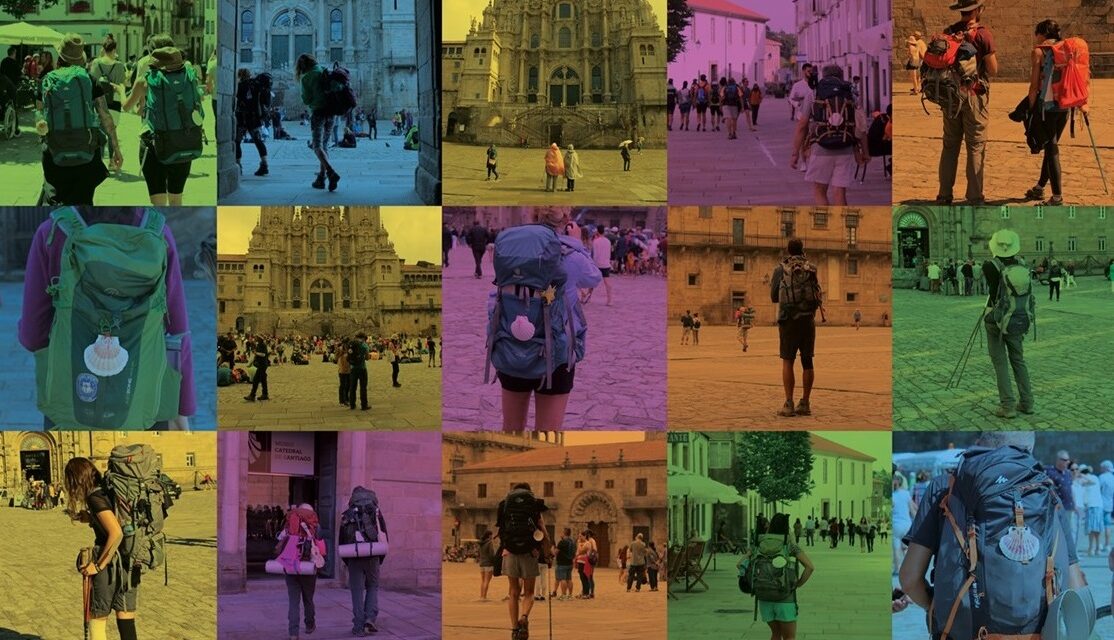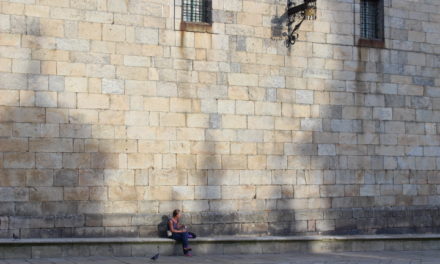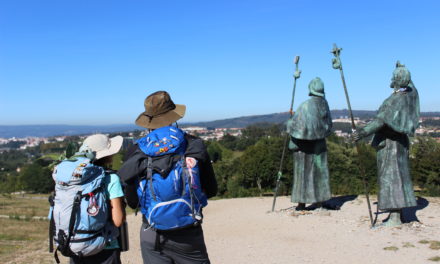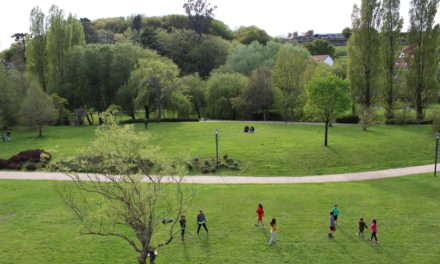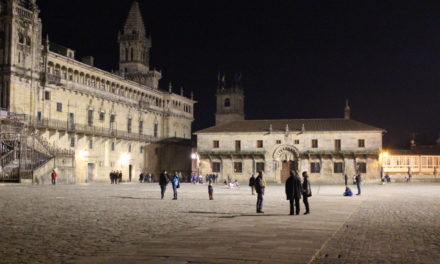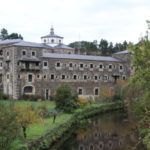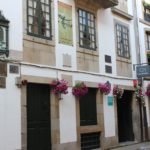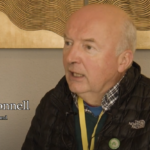The Memory of the Pilgrims is a compilation of current pilgrimage experiences, the experiences of 21st century pilgrims. This project is aimed at giving value to the most personal and subjective aspects of pilgrimages to Santiago: approaching the pilgrims one by one. It is therefore a project that intends to underline the human and subjective element, and also to present the great human diversity that is to be found on the Camino de Santiago.
Despite the existence of multiple websites, blogs and books that punctually collect testimonies and pilgrimage experiences, there is a void in this area: the absence of solid and stable projects for the creation of an archive, of a collective memory that is as representative as possible of the great diversity that exists today on the Camino.
In 2018, the Jacobea Foundation decided to take on this responsibility and commit itself to creating a memory of current pilgrimages, a commitment to which Monte do Gozo now forms a part.
The Memory of the Pilgrims is a living project in continuous growth and transformation, which is generating and expanding an archive that increasingly includes more and more pilgrims of different nationalities and origins, while spreading it through different initiatives: blogs and networks social, book publication, audiovisual edition, exhibitions, etc. And all this always in two language versions: Spanish and English. In this way we wish to contribute to storing, conserving and disseminating the intangible heritage of the Camino de Santiago, a heritage that has been of historically crucial importance.
The origin of this project must be found in the journals and pilgrimage itineraries of other centuries – known as Compostela ordeporic literature – without which the current revitalization of pilgrimages would have been impossible. Through these sources and the data they collected, it was possible to recover the physical route of the Camino de Santiago in the 20th century, but, in addition, its biographical elements, descriptions and numerous details, make up an enormous contribution to the construction of a cultural history of Europe.
We invite pilgrims and readers of the pilgrimage stories that we share, not to forget the itinerary of Egeria, a pilgrim who journeyed to Egypt, Palestine, Syria, Mesopotamia, Asia Minor and Constantinople in the 4th century, which is still considered as the first autobiographical text of West. We also remind you that pilgrimage stories such as that of the English mystic Margery Kempe, a pilgrim to Santiago and many other sanctuaries in Europe and the Holy Land in the 14th century, give us access to the ‘intrahistory’ and, even, to the psychology of its protagonist; and we emphasize that texts such as that of the Italian Nicola Albani, a pilgrim to Santiago in 1743 and 1745, allow us to know more about the society and daily life of his time than most of the documents preserved in the archives. In other words, in highlighting the importance of the testimonies and current experiences that we collect, we could be said to be making history!
All the stories we share in this exhibition are there to underline the fact that all pilgrimage experiences have great value in so much as each one is unique. In part, they are about stories that are the fruit of interviews carried out in the city of Santiago de Compostela, at the time when the pilgrims had just finished their pilgrimage; but a substantial part are texts written and sent by the pilgrims, testimonies reached to us through the networks and the Jacobean Foundation website. We invite all pilgrims to contribute to building this archive by sending us their own stories or experiences to the email info@fundacionjacobea.org We hope that together we can enrich our project. All pilgrims walk, and we want their walks to leave footprints behind them, marks of their passage that will not disappear without trace.
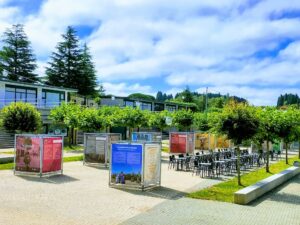
The exhibition is open to the public outside the private hostel of the Monte do Gozo, in the central square.
FREE ACCESS

